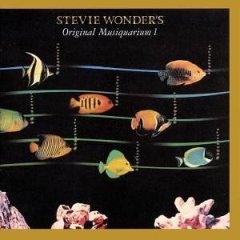| Stevie Wonder's Original Musiquarium I | ||||
|---|---|---|---|---|
 | ||||
| Compilation album by | ||||
| Released | May 4, 1982 | |||
| Recorded | 1971–1982 | |||
| Genre | ||||
| Length | 85:47 | |||
| Label | Tamla | |||
| Producer | Stevie Wonder | |||
| Stevie Wonder chronology | ||||
| ||||
| Singles from Stevie Wonder's Original Musiquarium I | ||||
| ||||
Stevie Wonder's Original Musiquarium I is a compilation album by R&B/soul musician Stevie Wonder that was released in 1982 by Motown Records. It collects eleven Top-40 hit singles and five album tracks, including four previously unreleased tracks, from 1972 to 1982. The album peaked at No. 4 on the Billboard 200, at No. 1 on the Top R&B Albums chart in the U.S., and went to No. 8 in the UK. It has been certified gold by the RIAA. The four new songs were issued as singles to promote the album, with "That Girl" and "Do I Do" reaching the top 10 and top 20 of the US pop chart and number one and two on the R&B chart, respectively.